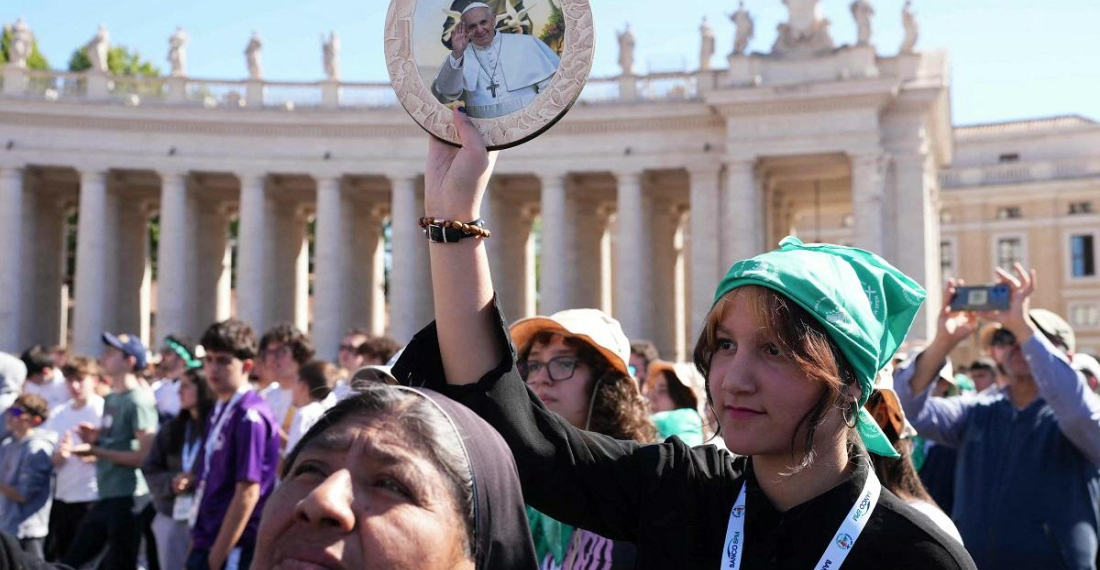With Pope Francis laid to rest, all eyes turn now to the conclave, the secretive meeting of cardinals set to convene within days to elect a new head of the Catholic Church. Mourners were permitted to visit his tomb for the first time Sunday, a day after an estimated 400,000 people, including world leaders, turned out for the Argentine's funeral at the Vatican and burial in Rome. The crowds were a testament to the popularity of Francis, an energetic reformer who championed the poorest and most vulnerable.
Many of those mourning the late pope, who died on Monday aged 88, expressed anxiety about who would succeed him. "He ended up transforming the Church into something more normal, more human," said Romina Cacciatore, 48, an Argentinian translator living in Italy. "I'm worried about what's coming."
On Monday morning, cardinals will hold their fifth general meeting since the pope's death, at which they are expected to pick a date for the conclave. Cardinal-electors at the secret vote will cast four votes per day until one candidate secures a two-thirds majority, a result broadcast to the waiting world by burning papers that emit white smoke.
Luxembourg Cardinal Jean-Claude Hollerich said last week he expected the conclave to take place on May 5 or 6 - shortly after the nine days of papal mourning, which ends on May 4. German Cardinal Reinhard Marx told reporters on Saturday the conclave would last just "a few days".
Francis's funeral was held in St Peter's Square in bright spring sunshine, a mix of solemn ceremony and an outpouring of emotion for the Church's first Latin American pope. More crowds gathered on Sunday to view his simple marble tomb at the basilica of Santa Maria Maggiore, his favourite church in Rome. Francis was buried in an alcove of the church, becoming the first pope in more than a century to be interred outside the Vatican.
A couple of hours after opening, the large basilica was heaving, the crowds periodically shushed over speakers. Among the mourners were pilgrims and Catholic youth groups who had planned to attend the Sunday canonisation of Carlo Acutis, which was postponed after Francis died. Many of the mourners expressed hope that the next pope would follow Francis's example, at a time of widespread global conflict and growing hard-right populism.
Italian Cardinal Pietro Parolin - who was secretary of state under Francis and is a front-runner to become the next pope - led a mass Sunday morning in St Peter's Square, which drew 200,000 people according to the Vatican. More than 220 of the Church's 252 cardinals were at Saturday's funeral. They will gather again on Sunday afternoon at Santa Maria Maggiore to pay their respects at Francis's tomb. Only cardinals under the age of 80 are eligible to vote in the conclave. There are 135 currently eligible, most of whom Francis appointed himself.
But experts caution against assuming they will choose someone like him. Francis, a former archbishop of Buenos Aires who loved being among his flock, was a very different character from his predecessor Benedict XVI, a German theologian better suited to books than kissing babies. Benedict, in turn, was a marked change from his Polish predecessor, the charismatic, athletic and hugely popular John Paul II. Francis's changes triggered anger among many conservative Catholics, who hope the next pope will turn the focus back to doctrine.






